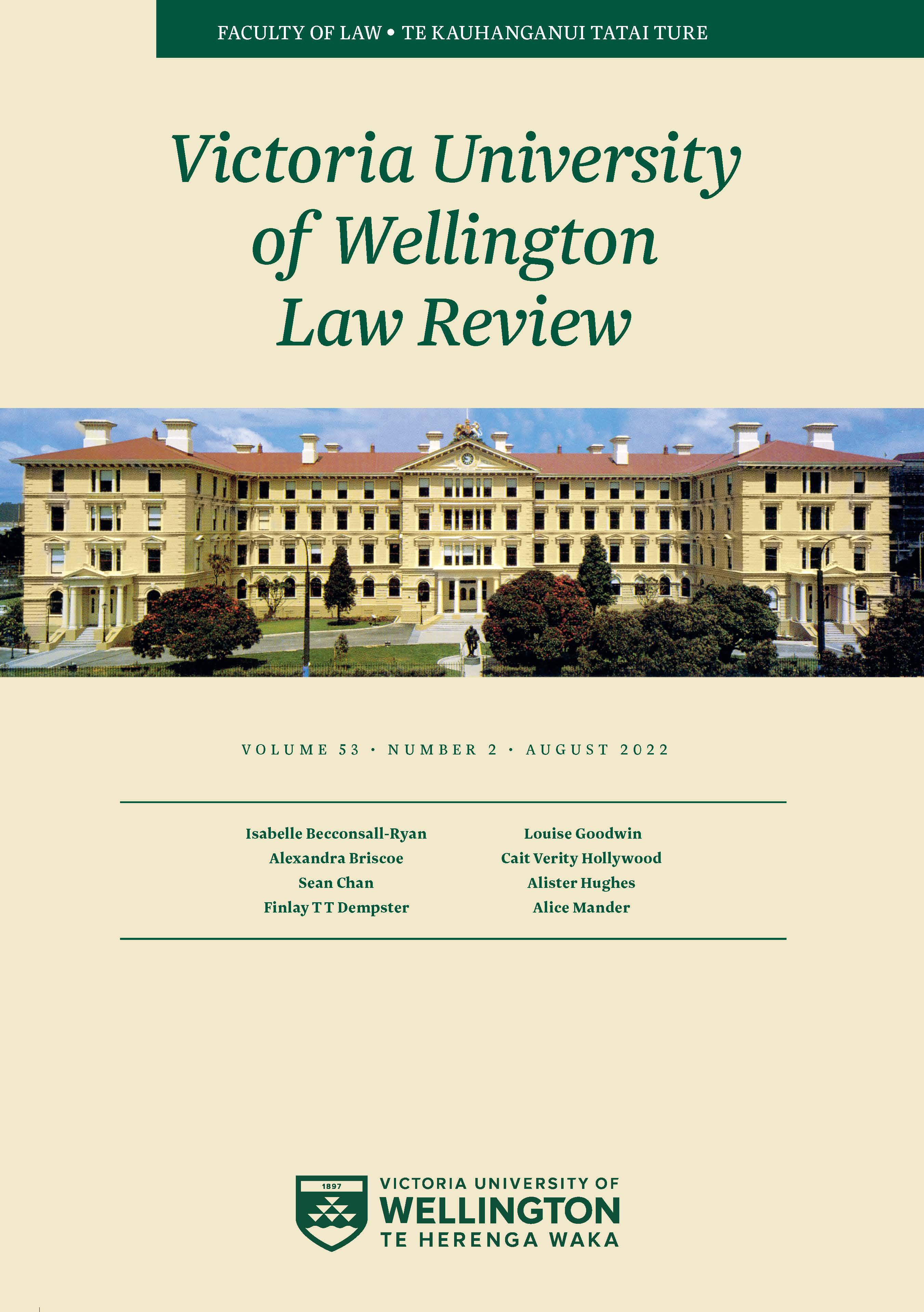Of Climate Change, Quantum Physics and Causation: Is it Time for a Probabilistic Approach to Causation in Tort Law?
DOI:
https://doi.org/10.26686/vuwlr.v53i2.7703Abstract
To date, the requirement that a plaintiff prove causation has hampered the success of tort-based claims against corporate greenhouse gas emitters. The need for an alternative approach to causation is clear. In recent years, courts and academics have engaged with the task of finding viable alternatives to the dominant "but for" test for causation. This article adds to that endeavour by proposing a new line of inquiry, grounded in approaches to causation that have emerged in scientific disciplines. It argues that the demise of deterministic theories of causation in science, and the rise of indeterministic and probabilistic alternatives, could be of interest to lawyers seeking a new approach to causation in law that is better tailored to the challenges of climate change. The article contends that courts' rigid application of the "but for" test is rooted in a Newtonian assumption that all things have a determinate cause. It advocates instead for a probabilistic approach, drawing on Fairchild v Glenhaven Funeral Services Ltd as evidence of its feasibility. Such an approach, it is argued, creates a real prospect of success for climate change litigants.
Downloads
Downloads
Published
How to Cite
Issue
Section
License
Authors retain copyright in their work published in the Victoria University of Wellington Law Review.


